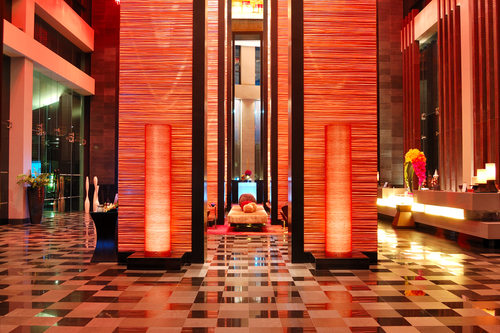The requisite amenities of luxury hotels have long focused on the room—free WiFi, linens with high thread counts, widescreen HD TV, and premium liquors in the minibar. In 2023 hotels have engaged more than ever in sustainable practices, not only to save themselves the effects and cost of climate change but because their clientele is demanding it.
This year’s UN Climate Conference, COP27 took place against a backdrop of an energy crisis and confirmation that the world is not doing enough to tackle carbon emissions and protect the future of our planet.
With urgency being the buzzword from environmental experts, consumers are expecting businesses to take rapid responsibility and, as importantly, share transparency around the steps they are taking.
A survey from TripAdvisor shares how tourists are already taking action to travel more sustainably. Over 62% of travelers have opted for more environmentally friendly hotels, and 69% said they intended to make more responsible choices soon.
What does this mean for hotels and hospitality, and what can ABB and the Mission to Zero program do to help hotels and hospitality goals of achieving net zero targets by 2050?
Numbers highlight how essential it is for hotels to build a sustainability strategy. As we move towards a more conscious and environmentally aware consumer profile, hotels must be able to adapt, offering travelers the opportunity to travel more sustainably while working toward net zero.
One of the key challenges in achieving sustainability in hospitality is the inherently resource-intensive nature of the industry. Hotels, resorts, and restaurants require significant amounts of energy to operate, and the waste generated can harm the environment.
However, there are many ways in which hotels can reduce their environmental footprint and become more sustainable. One of the most effective ways to reduce the environmental impact of the hotel and hospitality industry is through an ABB Mission to Zero design. This includes the use of energy-efficient data collection through metering and HVAC systems and sustainable building materials. Through this program, buildings not only reduce energy consumption and greenhouse gas emissions but also provide a healthier and more comfortable environment for guests and employees.
Utilizing the ABB technology blueprint, a typical hotel will use interconnected technologies to improve comfort and performance across energy management, water use, air conditioning, access, automation, lighting, remote monitoring, and communication networks.
Thanks to ABB’s solution areas, building operators and facility managers can have digital control of all these elements, and smart buildings will capture their inherent opportunities to become more environmentally friendly – from substantially contributing to carbon reduction targets through efficiency gains in heating and cooling equipment and in the building itself.
The ABB sustainability solution can enable constant surveillance and optimum control of energy production, consumption, and storage. Largely autonomous, this learning system calculates the optimum energy flow based on predictive data and compensates for deviations in real time. On a Mission to Zero site, these technologies combine for a holistic approach that is scalable according to the requirements of the building.
One of the most significant benefits of sustainability in hotels is cost savings. By reducing energy consumption, hotels can save money on their utility bills. Cost savings are significant and can help hotels to improve their bottom line. In addition to cost savings, sustainability in hotels can also help to attract environmentally conscious guests.
Today’s travelers are increasingly aware of the impact of their travel on the environment and are seeking eco-friendly accommodation options. By implementing sustainability practices, hotels can differentiate themselves from their competitors and attract a growing market of environmentally conscious travelers.
Implementing sustainability in hotels requires a commitment from hotel owners and management. It is not a one-time effort but a continuous process that requires ongoing monitoring and improvement. Hotel owners and managers must be willing to invest in sustainable technologies and practices and educate their staff on the importance of sustainability.
There are several global sustainability certifications available for hotels. Certifications include LEED (Leadership in Energy and Environmental Design), US Green Building Council,
BREEAM, and Green Globe. These certifications can help hotels demonstrate their commitment to sustainability.
Sustainability in hotels is essential for the future of the industry. It can help hotels to save money, attract environmentally conscious guests, and reduce their environmental impact. Implementing sustainable practices requires a commitment from hotel owners and management, but the benefits are significant. As travelers become increasingly aware of the impact of their travel on the environment, sustainability is a key factor in their decision-making process. Hotels that embrace sustainability now, will be better positioned to succeed in the future.



